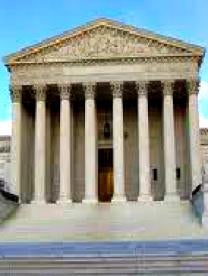On June 27, 2017, the United States Supreme Court agreed to hear a challenge to a law that prohibits individual states from permitting gambling based on professional or amateur sports. The Professional and Amateur Sports Protection Act of 1992 (PASPA)—the federal law being challenged—effectively outlaws sports betting nationwide minus exemptions for a few states, including Nevada.
The challenge stems in part from an attempt by the state of New Jersey to legalize sports betting in opposition of PASPA. In 2012, New Jersey passed legislation that would allow sports betting on professional and college sports at racetracks and casinos. Empowered by provisions in PASPA, the NCAA and each of the major professional sports leagues sued the state to prevent the law from taking effect. That case has since found its way to the Supreme Court by way of a petition that asks the Court to consider whether a federal statute that prohibits modification or repeal of state-law prohibitions on private conduct impermissibly commandeers the regulatory power of the States under the Tenth Amendment.
Before deciding on whether to hear the case, the Court had invited the Solicitor General to file a brief expressing the views of the federal government. Several months later, Acting Solicitor General Jeffrey Wall filed a brief for the United States, recommending that the Justices deny the petition. Specifically, the Acting Solicitor General’s brief stated:
[PASPA] does not violate the Tenth Amendment because it neither compels States to regulate according to federal standards nor requires state officials to administer federal law. Instead, [PASPA] prohibits States from operating sports-gambling schemes themselves or affirmatively licensing or authorizing private parties to do so. Those prohibitions are a permissible exercise of Congress’s authority to regulate state activities and to preempt state laws that conflict with federal policy in an area within Congress’s enumerated powers. Such prohibitions are commonplace and raise no commandeering concern.
Notwithstanding the Acting Solicitor General’s recommendation, it appears as if state-sanctioned sports betting will have its day in the highest court in the land. At least five states—Arizona, Louisiana, Mississippi, West Virginia, and Wisconsin—have supported New Jersey’s challenge to the federal law, and at least another six states—Connecticut, Maryland, Michigan, New York, Pennsylvania, and South Carolina—have either introduced, or plan to introduce, bills that would legalize sports betting should the federal law be repealed.


 i
i

